Meg Danforth – 3-Day Certificate Course Cognitive Behavioral Therapy for Insomnia (CBT-I)
$499.00 Original price was: $499.00.$118.75Current price is: $118.75.
Available for download now.
Meg Danforth – 3-Day Certificate Course Cognitive Behavioral Therapy for Insomnia (CBT-I)
- DAY 1: Assessment and the Basics of CBT-I
- Assessment
- Goals of assessment
- Clinical tools for assessing insomnia
- Screen for other sleep disorders
- When to make a referral to a sleep clinic
- Contraindications for CBT-I
- Sleep and its Regulation
- Normal sleep architecture
- Two-process model of sleep: Circadian rhythm and sleep drive
- The arousal system
- What causes chronic insomnia?
- Key perpetuating factors for chronic insomnia
- Behaviors that interfere with “buildup” of sleep drive
- Behaviors that interfere with the optimal timing of sleep
- Conditioned arousal and physiological/ cognitive hyperarousal
- Perpetuating factors and CBT-I
- Step-by-Step Guide to CBT-I: Stimulus Control and Sleep Restriction Therapies
- Stimulus Control (SC): Addressing conditioned arousal
- Rules for re-associating the bed with sleep
- Identify and overcome potential obstacles to adherence
- Sleep Restriction Therapy (SRT): Restoring the sleep drive
- How to present rationale
- Calculate time-in-bed prescription
- Placing the time-in-bed window
- Identify and overcome potential obstacles to adherence
- Sleep extension
- Combining SC and SRT
- The myth of sleep hygiene
- Stimulus Control (SC): Addressing conditioned arousal
- Step-by-Step Guide to CBT-I: Cognitive Therapy and Counter-arousal
- Counter-arousal strategies: Quieting an active mind
- Establishing a buffer zone
- Processing strategies (including constructive worry and rumination strategies)
- Mindfulness and relaxation therapies
- Cognitive therapy: Identify and change distorted thoughts about sleep
- Thought Records
- Behavioral Experiments
- Socratic Questioning
- Counter-arousal strategies: Quieting an active mind
- Implementation Issues
- Models of Delivery
- Four session individual therapy format
- Seven session group therapy format
- Single session CBT-I
- CBT-I and hypnotic medication
- Practice guidelines: CBT-I as first line treatment for chronic insomnia
- Combining CBT-I with sleep medication
- Positive and negative effects of sleep medications
- Use of ineffective sleep medications
- Promote non-contingent use of sleep medication
- Strategies to support hypnotic discontinuation
- Models of Delivery
- Assessment
- DAY 2: Delivering CBT-I in the Context of Comorbidities
- Depression
- CBT-I and MDD
- Troubleshooting adherence in depressed patients
- Anhedonia
- Sleep or bed as avoidance
- Fatigue and fatigue management strategies
- Rumination in depression
- Case examples
- Sleep and antidepressants
- Anxiety
- Sleep effort: Core target of CBT-I
- Covert manifestations of sleep effort
- Cognitive restructuring of sleep anxiety
- Paradoxical Intention
- Troubleshooting adherence with anxious clients
- When SRT/SC increase anxiety
- Counter control and sleep compression
- High sleep anxiety vs high arousal
- Panic Disorder and nocturnal panic
- OCD and CBT-I
- Sleep effort: Core target of CBT-I
- Trauma
- Sleep and PTSD
- CBT-I trials in PTSD
- Behavioral targets in clients with insomnia vs PTSD
- Common treatment challenges in clients with PTSD
- Nightmares and nightmare treatments
- Traumatic Brain Injury (TBI)
- Comorbid TBI
- Sleep and TBI
- Efficacy of CBT-I in mild TBI (mTBI)
- Modify insomnia treatment for mTBI
- Comorbid TBI
- Chronic Pain
- Efficacy of CBT-I for those with chronic pain
- Chronic pain and stimulus control
- Common treatment challenges in clients with chronic pain
- Pain medications and other considerations
- Hypnotic Discontinuation
- Combined guided hypnotic taper approach
- Factors sustaining hypnotic dependence
- Unhelpful beliefs
- Learning
- Strategies to support client during hypnotic taper
- Psychoeducation about psychological dependence and rebound insomnia
- Cognitive therapy to target unhelpful beliefs
- Sample taper schedules
- Depression
- DAY 3: Co-Occurring Sleep Disorders and Advanced Case Formulation
- Co-Occurring Sleep Apnea
- Obstructive sleep apnea (OSA)
- Morbidity and mortality of OSA
- Relationship of nocturia and OSA
- Sleep apnea treatments
- Obstacles to treatment adherence
- Physical comfort
- Mechanical problems
- Social and other factors
- Psychological factors
- Improve adherence
- Work with stages of change
- Respond to common concerns
- CPAP desensitization for claustrophobia
- Treating insomnia in patients with comorbid OSA
- Obstructive sleep apnea (OSA)
- Circadian Rhythm Sleep Disorders
- Using light to leverage circadian timekeeper
- “Exogenous” circadian challenges
- Cope with shift work
- Adjust to jet lag
- “Endogenous” circadian disorders: Advanced and delayed sleep phase
- Phototherapy for delayed sleep phase
- Imagery Rehearsal Therapy for Nightmares
- Nightmares and nightmare disorder
- Differential diagnosis
- Assessment
- Self-monitoring via nightmare log
- Combine nightmare log and sleep diary
- Imagery Rescripting and Rehearsal
- Psychoeducation and rationale
- Nightmares and trauma
- Shaping imagery skills
- IRT steps
- Prazosin for nightmares
- Nightmares and nightmare disorder
- Advanced Case Formulation in CBT-I
- Case conceptualization: Asking the right questions
- Case Formulation Form
- Factors weakening sleep drive
- Factors weakening the clock
- Evidence of hyperarousal
- Unhelpful sleep behaviors
- Comorbidities
- Case Examples
- Co-Occurring Sleep Apnea
Would you like to receive Meg Danforth – 3-Day Certificate Course Cognitive Behavioral Therapy for Insomnia (CBT-I) ?
Description:
Watch this breakthrough Cognitive Behavioral Therapy for Insomnia (CBT-I) Certificate Course to develop core competencies and master the art of applying CBT-I to a variety of clinical populations!
You’ll get effective clinical techniques from two of today’s leading CBT-I treatment innovators, Colleen E. Carney, Ph.D. and Meg Danforth, Ph.D., who will share their insight and techniques. Join in for this revolutionary course as both reveal the latest advances in CBT-I to get the skills you need to succeed.
You will be able to utilize concrete strategies that will provide greater healing for your clients who suffer from:
- Anxiety
- Trauma
- TBI
- Nightmares
- Depression
- Chronic pain
- Sleep apnea
Discover evidence-based strategies to help your clients increase energy during the day, sleep more deeply, and re-initiate sleep after hot flashes, panic attacks or nightmares. The strategies that you will add to your toolbox can be easily integrated into existing treatment for depression, chronic pain, trauma and anxiety.
Through case studies, interactive discussions, examples of sleep logs, and reproducible handouts, you will take away practical CBT-I strategies to use immediately with any client. Finish this certificate course armed with tools you can use in your very next session.
Be the first to review “Meg Danforth – 3-Day Certificate Course Cognitive Behavioral Therapy for Insomnia (CBT-I)” Cancel reply
Related products
Health & Medical
Malka Stromer – Point of Care Ultrasound Course – Diagnose the Critical Issues Faster!
Health & Medical
Health & Medical
Deborah Dana – Polyvagal Theory in Action with Deb Dana, LCSW
Health & Medical
Peter H Addy – Psychedelics, Hallucinogens and Entheogens – What Clinicians Need to Know
Health & Medical
Health & Medical
Kate Freeman – Heart Of Releasing – Masters for Daily Releasing
Health & Medical

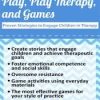

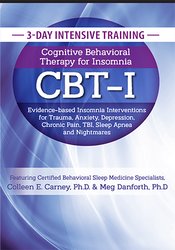

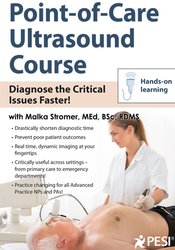

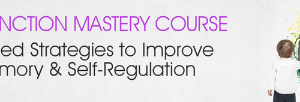
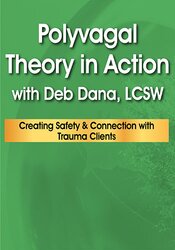

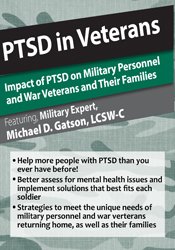

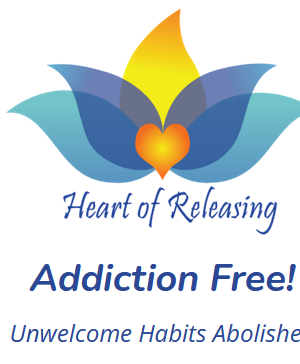
Reviews
There are no reviews yet.